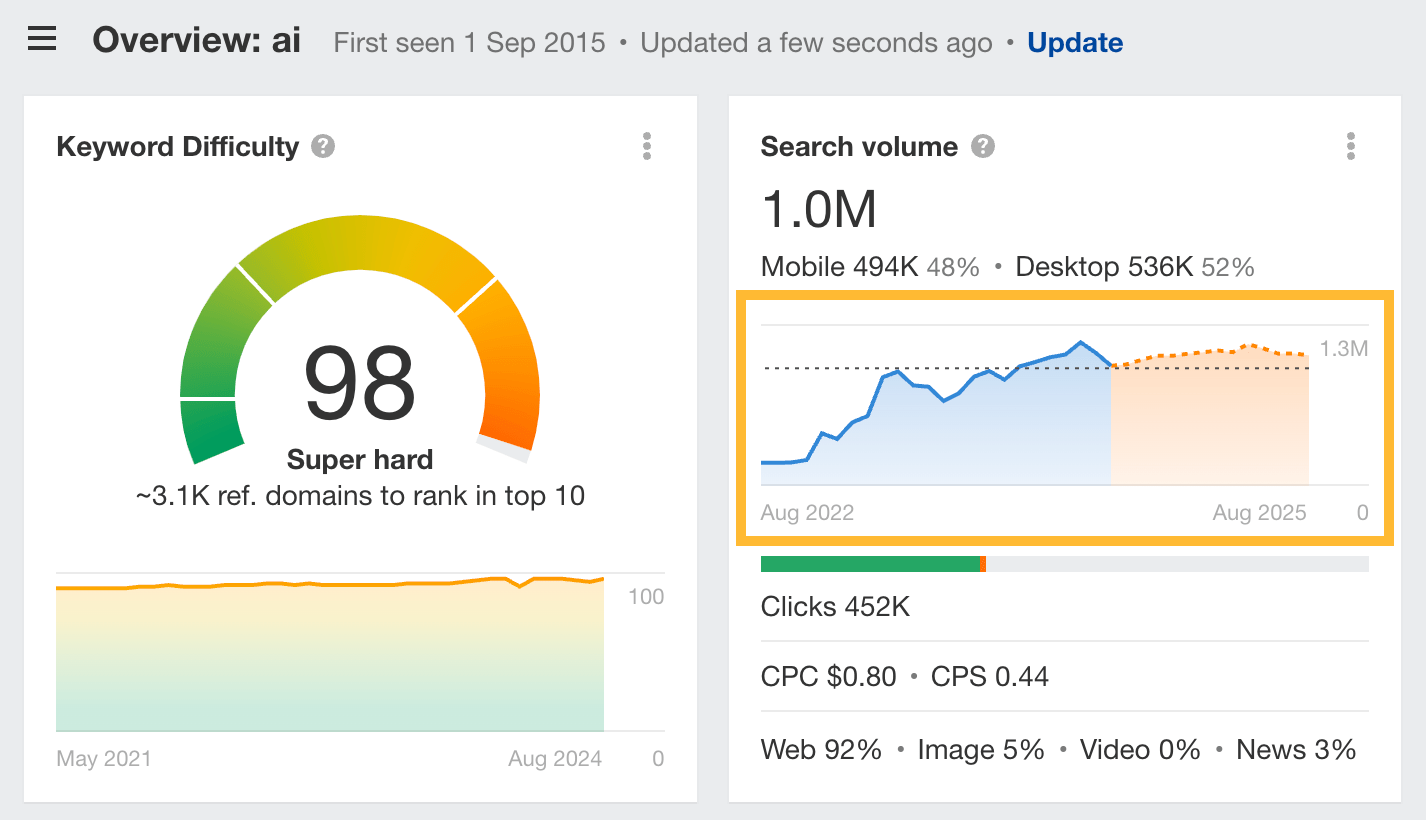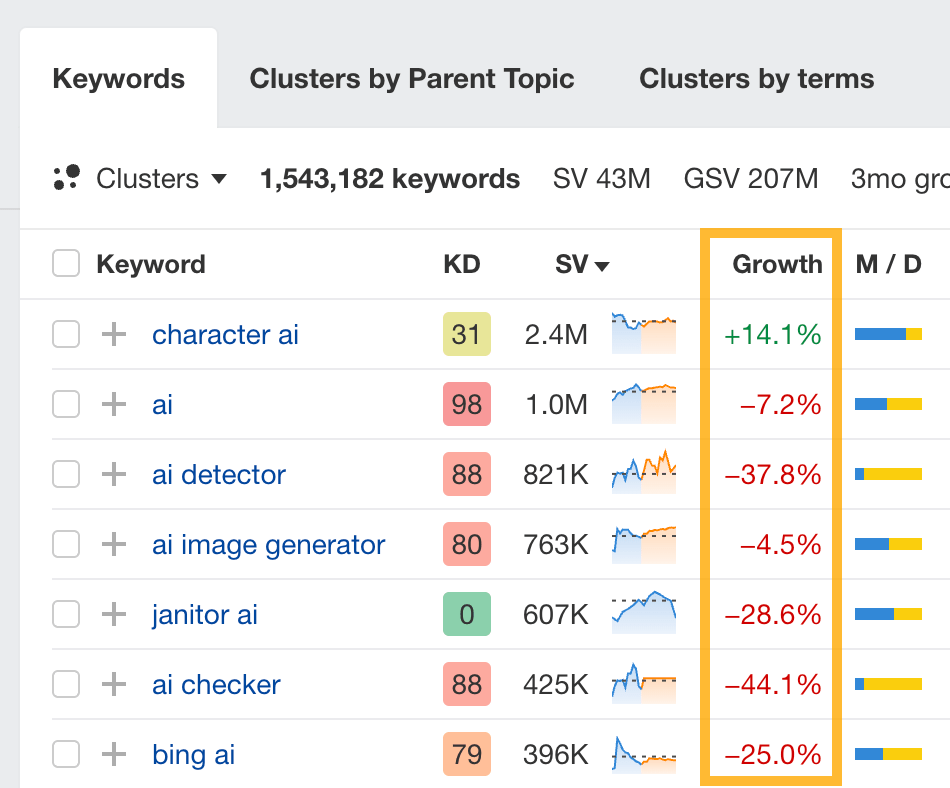Looking for a more reliable way to check the SERPs without spending a dime?
Each of these free tools allows you to check rankings in different locations, without “contaminating” the results with Google’s personalization algorithm.
Here’s the first one. The SERP Checker lets you check the top 10 pages for any keyword in 243 countries in seconds, no registration required. It’s fueled by Ahrefs’ keyword database with a total of 28.7B keywords and shows sample SEO data for the top pages.
Simply enter your keyword, set the country, and hit Check SERP.
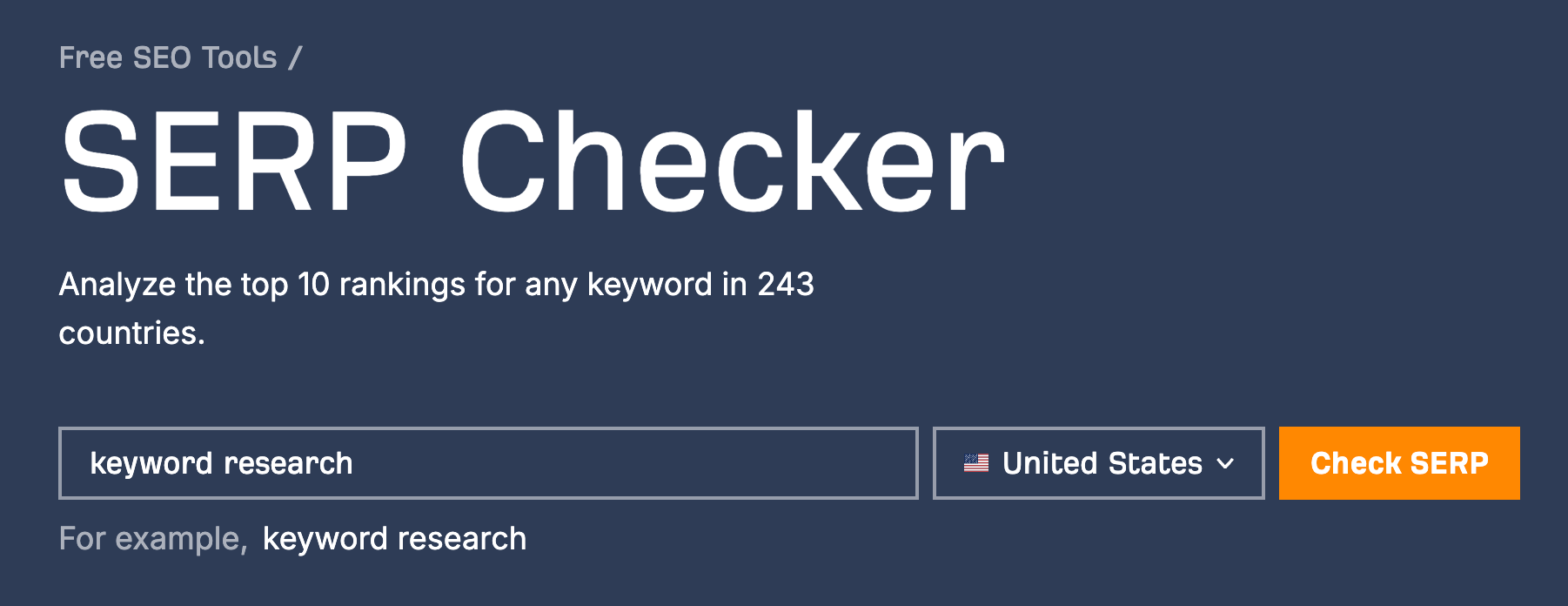
Set the country, Google’s local domain, language, and device to show the kind of SERP you want to check. Then, simply click on the local search icon to turn the SERP simulation on or off.
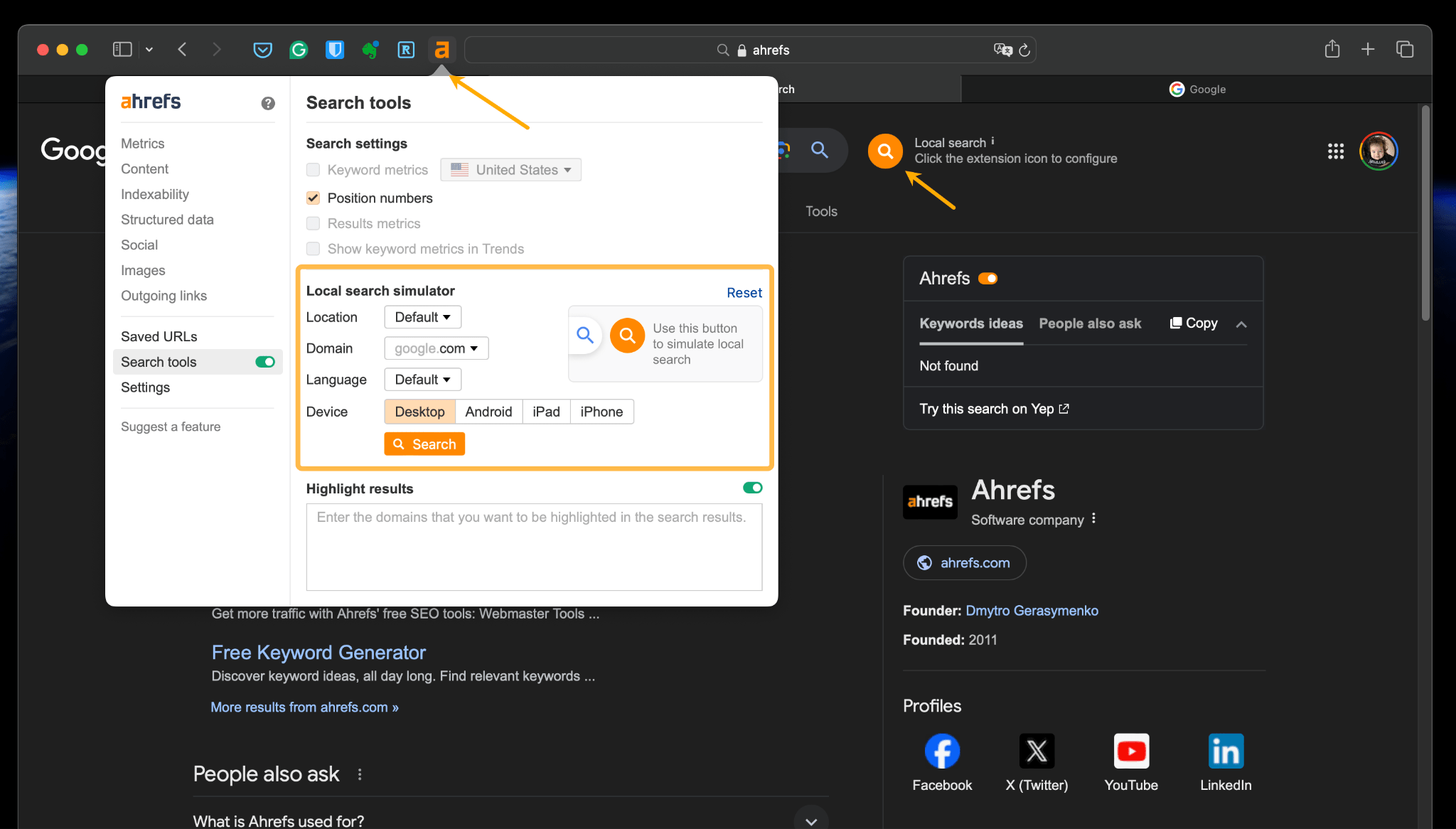

For users with an Ahrefs subscription, the toolbar also shows relevant SEO data, such as the keyword’s traffic potential, the site’s domain rating, or traffic to the page, which can be useful for other SEO tactics like link building.


These features are only a portion of the toolbar’s functionality. You can find out more and get the tool here.
You can use AWT to see which keywords bring your traffic, where you rank for those keywords, and which pages rank for them.
The tool has a number of convenient data filters. For example, you can track keywords in the top 10, keywords that contain a specific phrase, or keywords from a specific page on your site. You can also check your rankings in SERP features and switch countries.
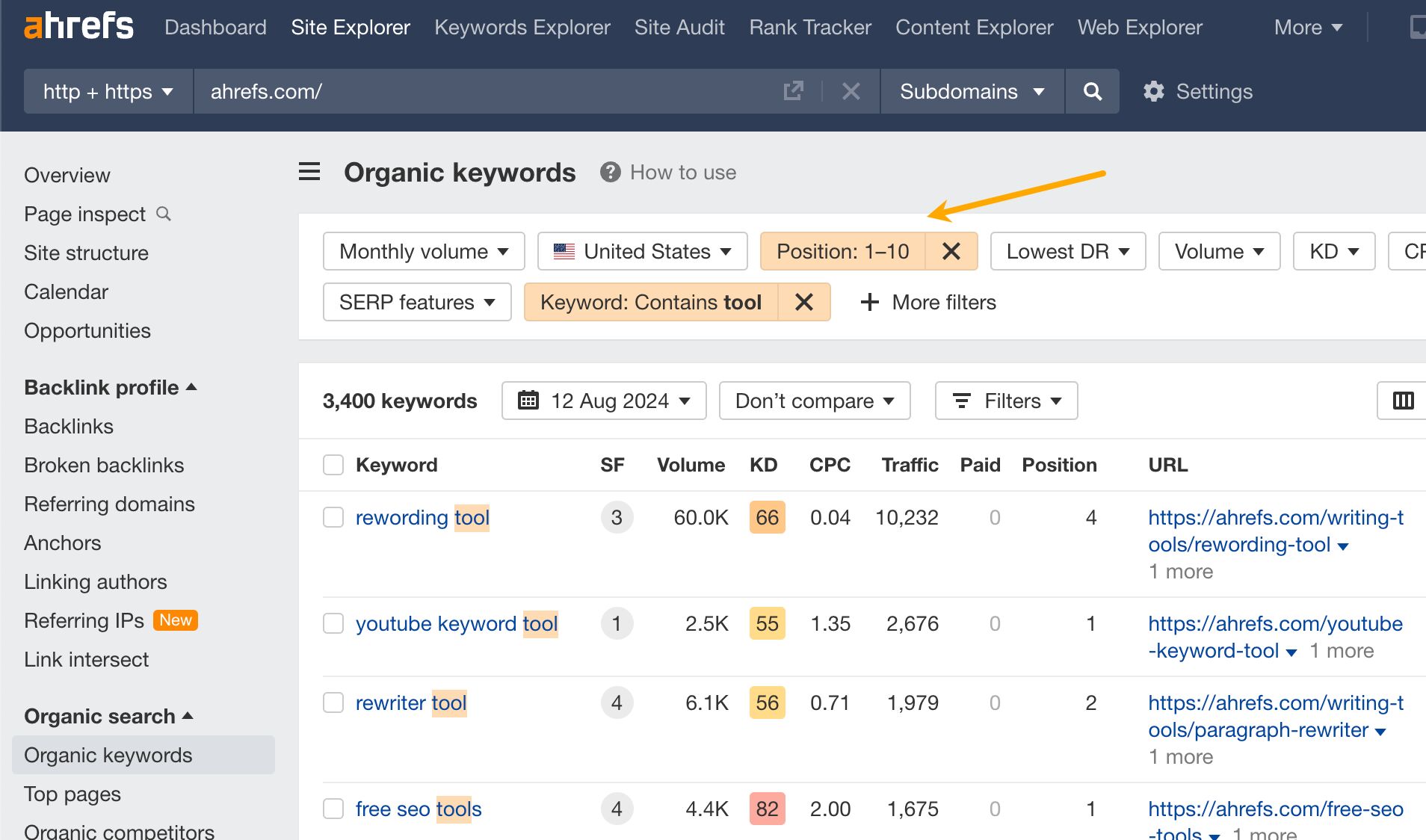

- Get AWT for free here.
- Set up a project (only for the sites where you can verify ownership).
- Click on the organic keywords card on the Dashboard.


- You will see your keywords, your ranking, and which page ranks for a given keyword. Use the filters to refine the report.
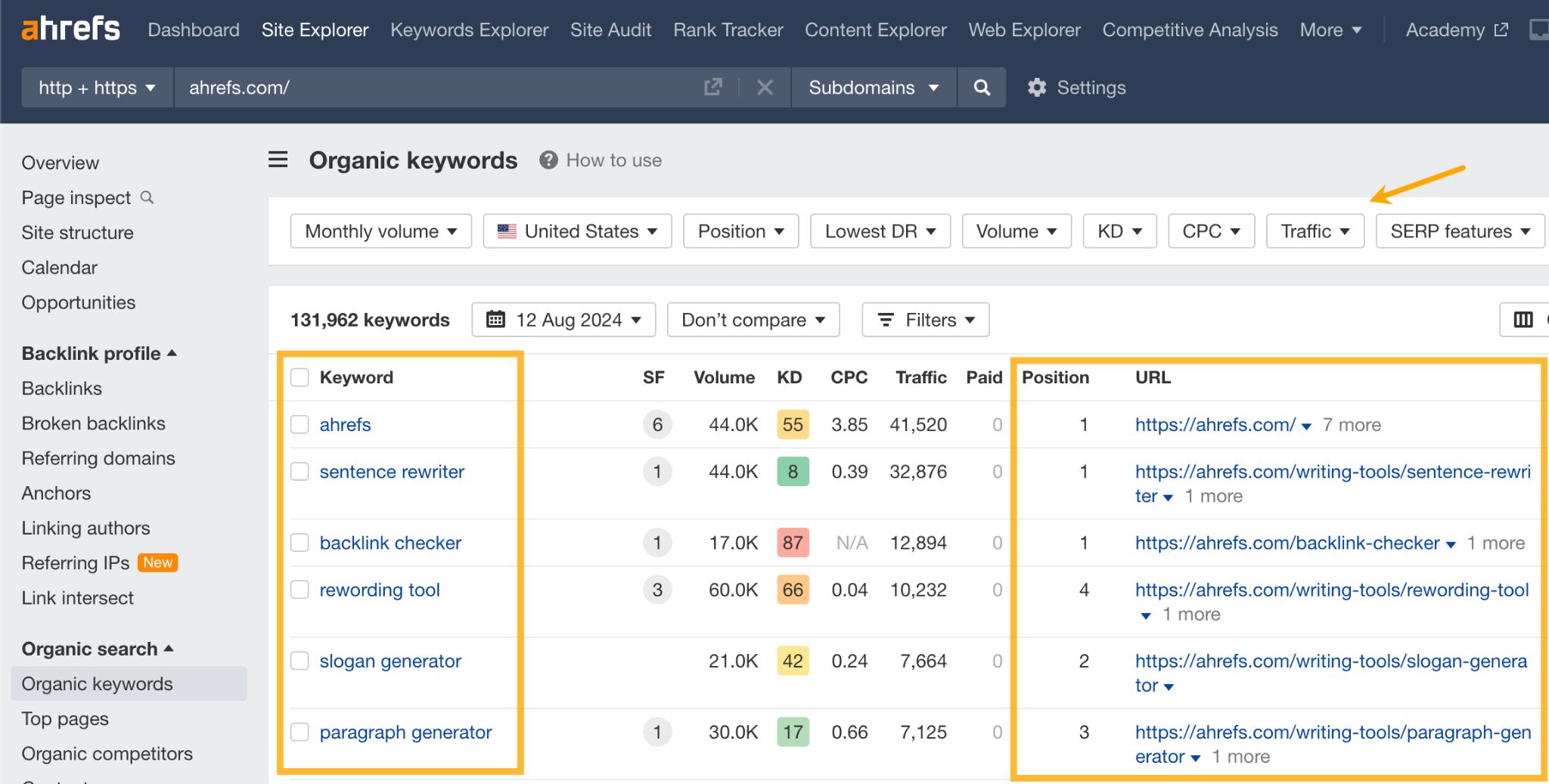

If you’re new to Google Search Console (GSC), it’s a free tool that provides insights into your organic traffic straight from Google and alerts you to potential issues that could impact your site’s performance.
Use GSC to track your rankings in video, news, and image search engine result pages — no other free tool offers this kind of data.
- Set up GSC for free here.
- Once GSC completes data preparation, go to Performance > Search results > Search type filter.
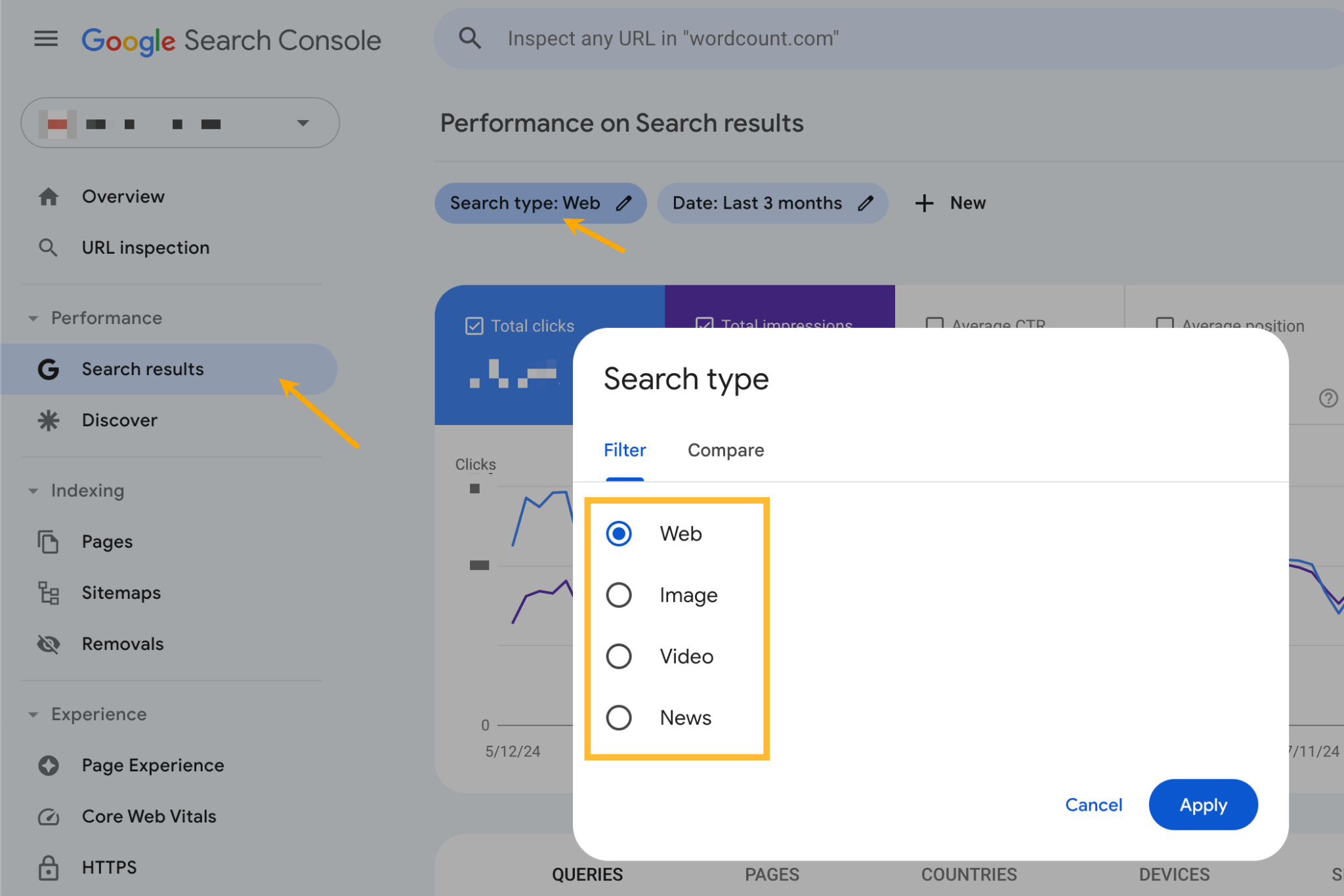

GSC also allows you to track the click-through rate your pages get on the SERPs. This can be useful for improving page titles and meta descriptions (see our guide).
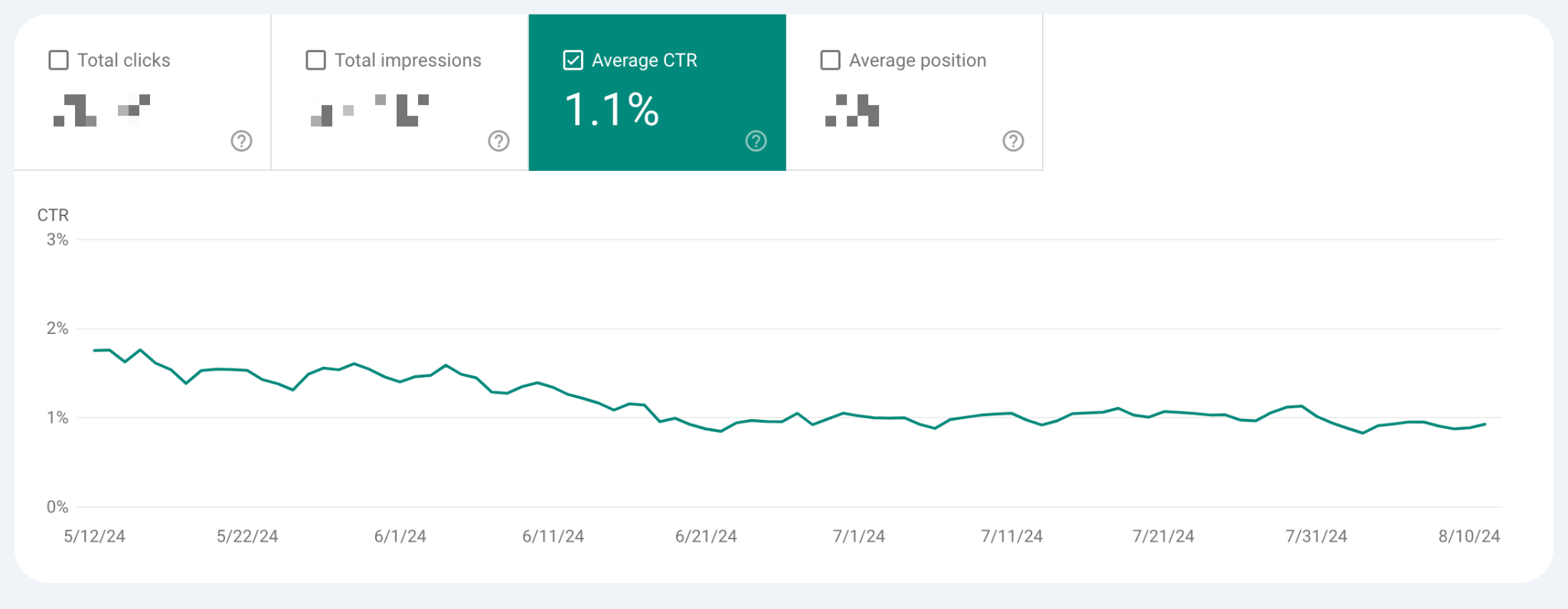

Need even more features and data? The free tools are only a fraction of what you can get with an Ahrefs subscription.
In Ahrefs’ Rank Tracker
First off, you can track your competitors’ rankings and compare share or voice. The share of voice metric shows how much traffic goes to your pages compared to competitors, and it’s great for comparing how you stack up regardless of changes in the search demand or Google’s SERP features.
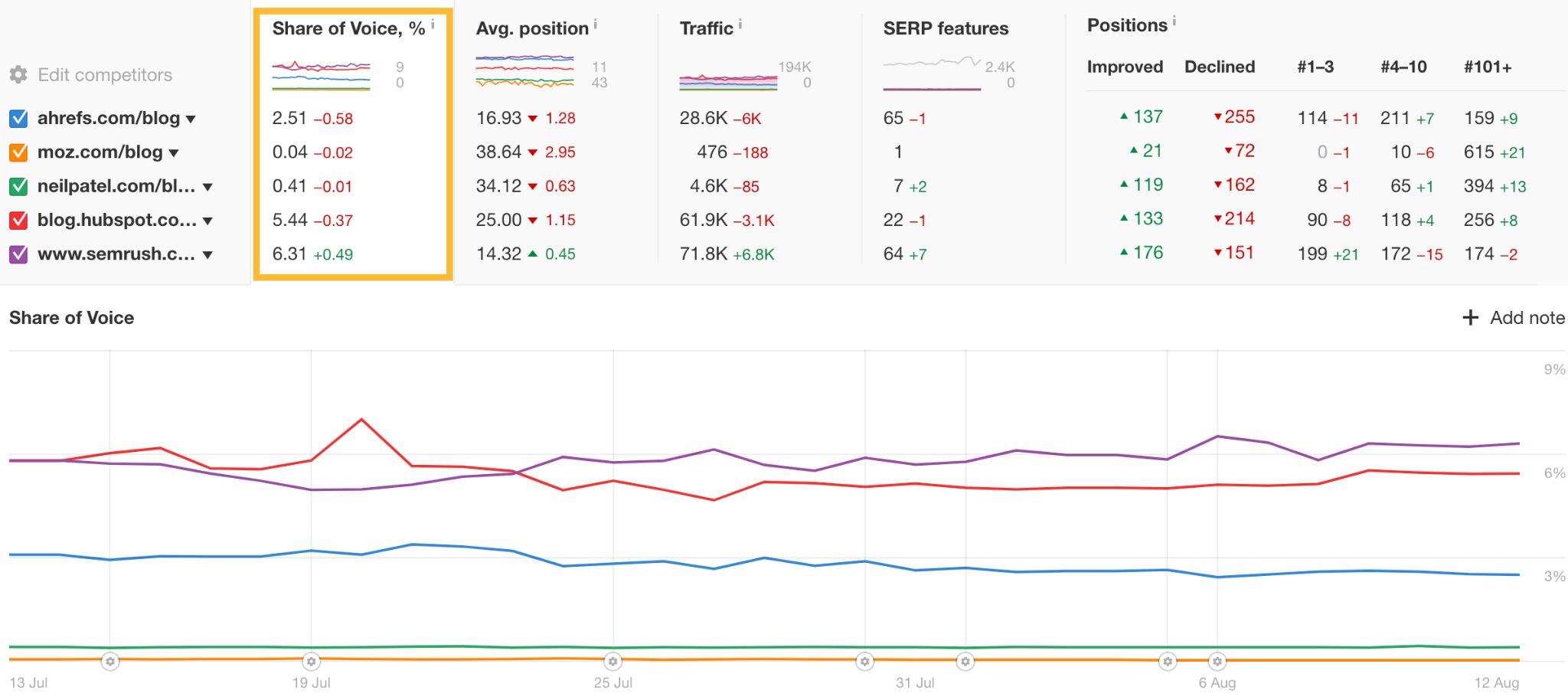

In Rank Tracker, you can track the rankings with higher precision. Set up keyword tracking by zip code to see how you rank in certain parts of a country.
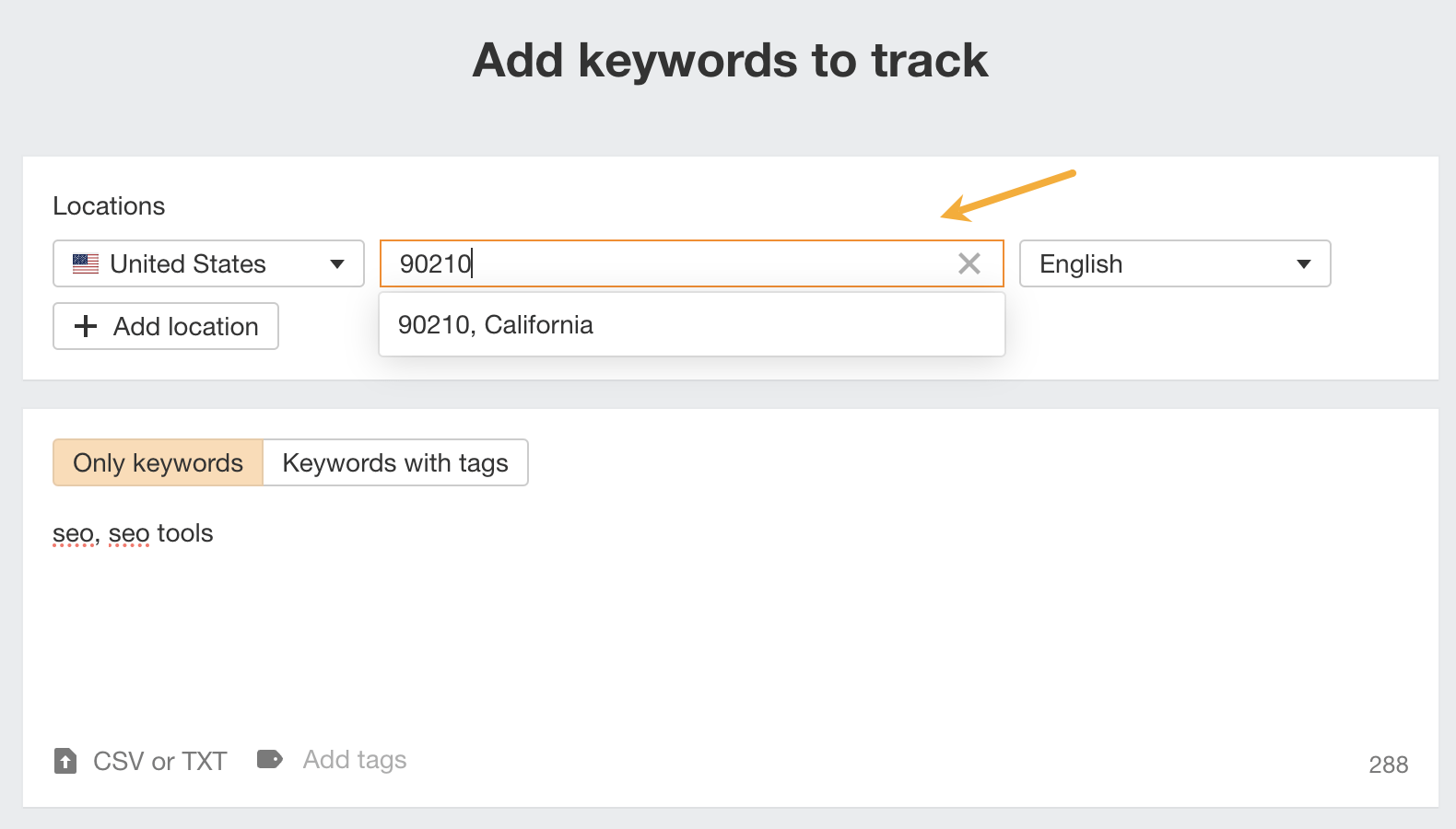

For even more precision, access daily ranking updates for more detailed reporting and the ability to respond quickly to any changes in your website’s search performance.


You will also find useful filters, like the “Multiple URLs” filter, which allows you to monitor the SERPs for potential cannibalization issues and take action when two or more pages are competing against each other.
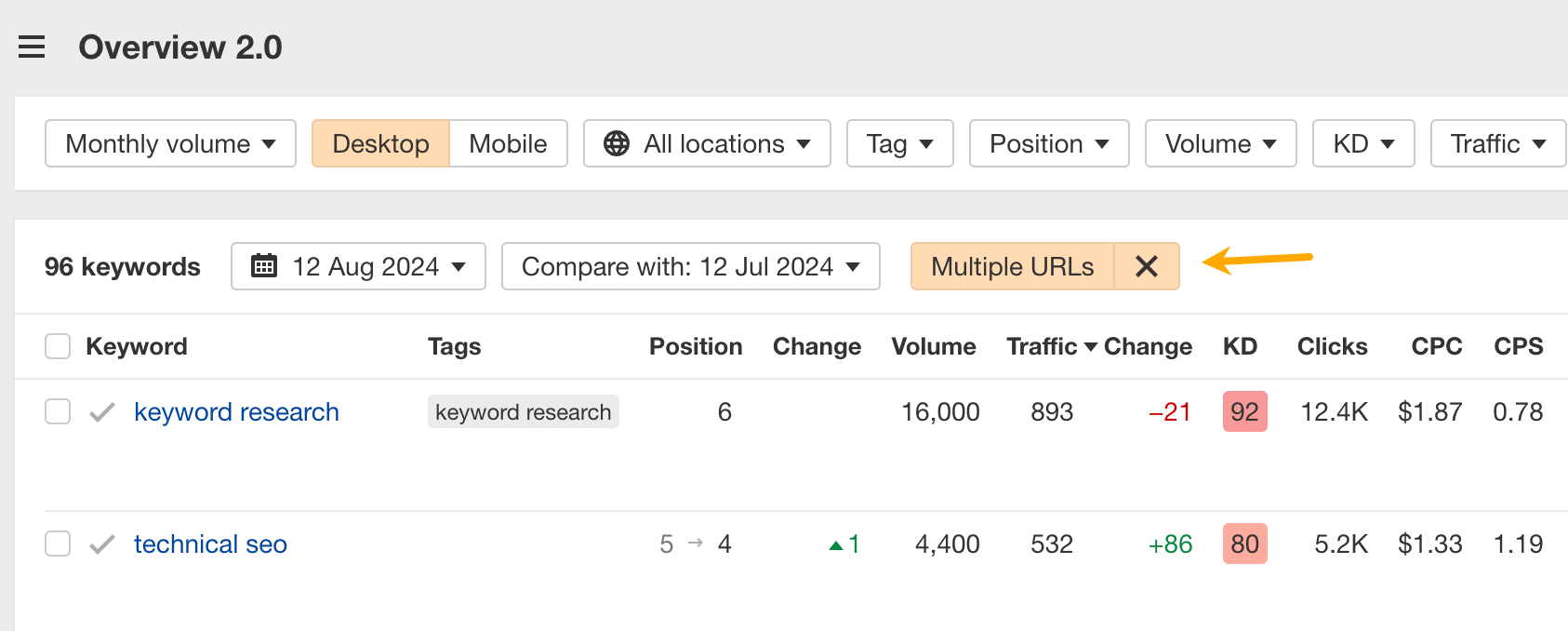

If you need more reporting capability, you can bring your website data into your reports using the Looker connector or API, making it easier to analyze and present insights.


Or get regular updates on your performance delivered straight to your inbox, without having to log in or run reports manually.
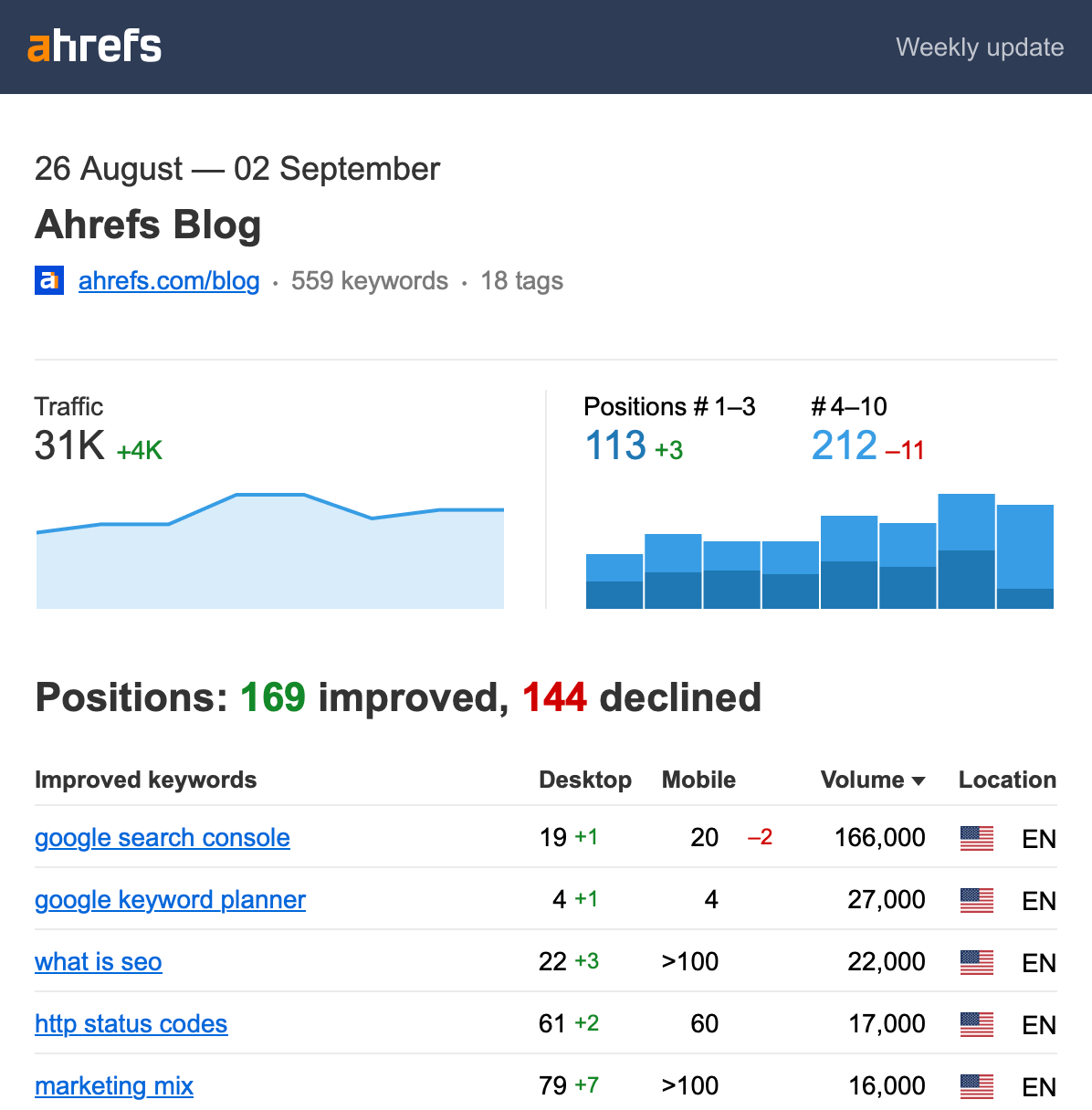

Finally, the integration with Google Search Console allows you to go past the 16-month data limit and spot trends more easily with weekly and monthly data frames.
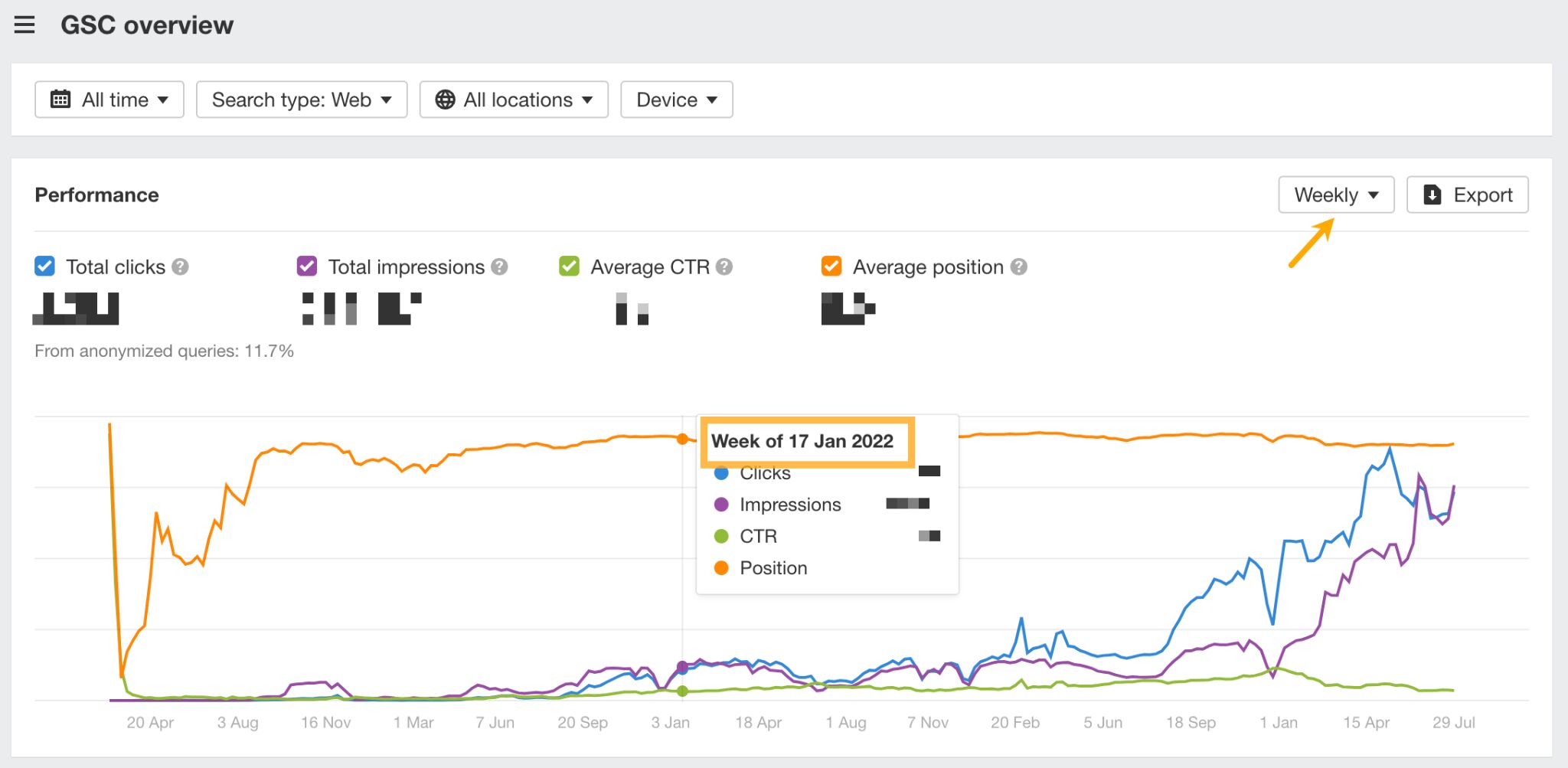

In Ahrefs’ Keywords Explorer
Analyze the SEPRs by comparing the top, rankings, and search intent on different dates. This allows you to see if you can rank for two keywords with the same piece of content, see which pages gained in rankings when yours dropped, and check the SERPs for a change in the dominating search intent.
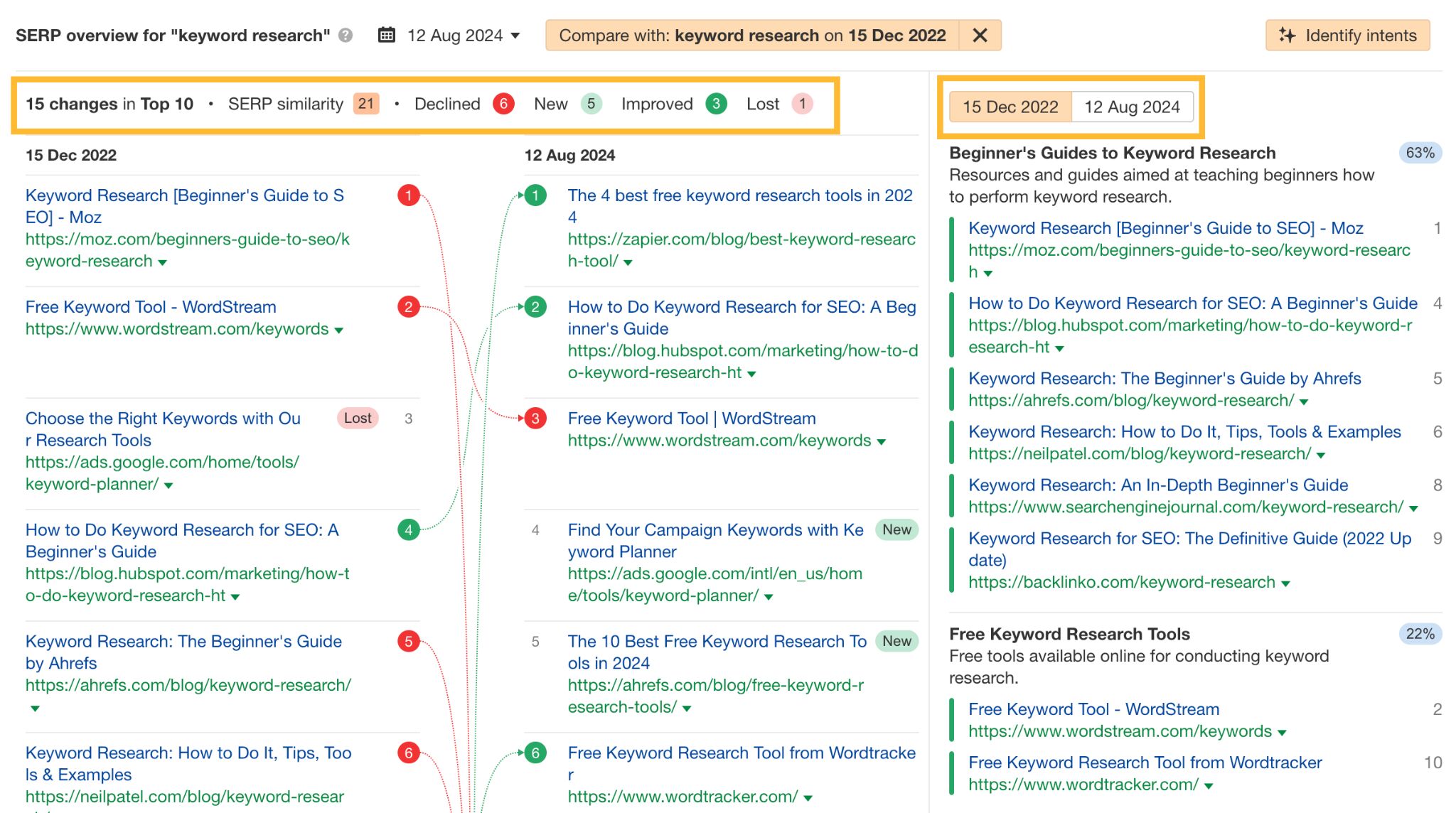

You can also see the ranking history for any keyword and any domain. One of the ways to use this report is to check for SERP volatility.
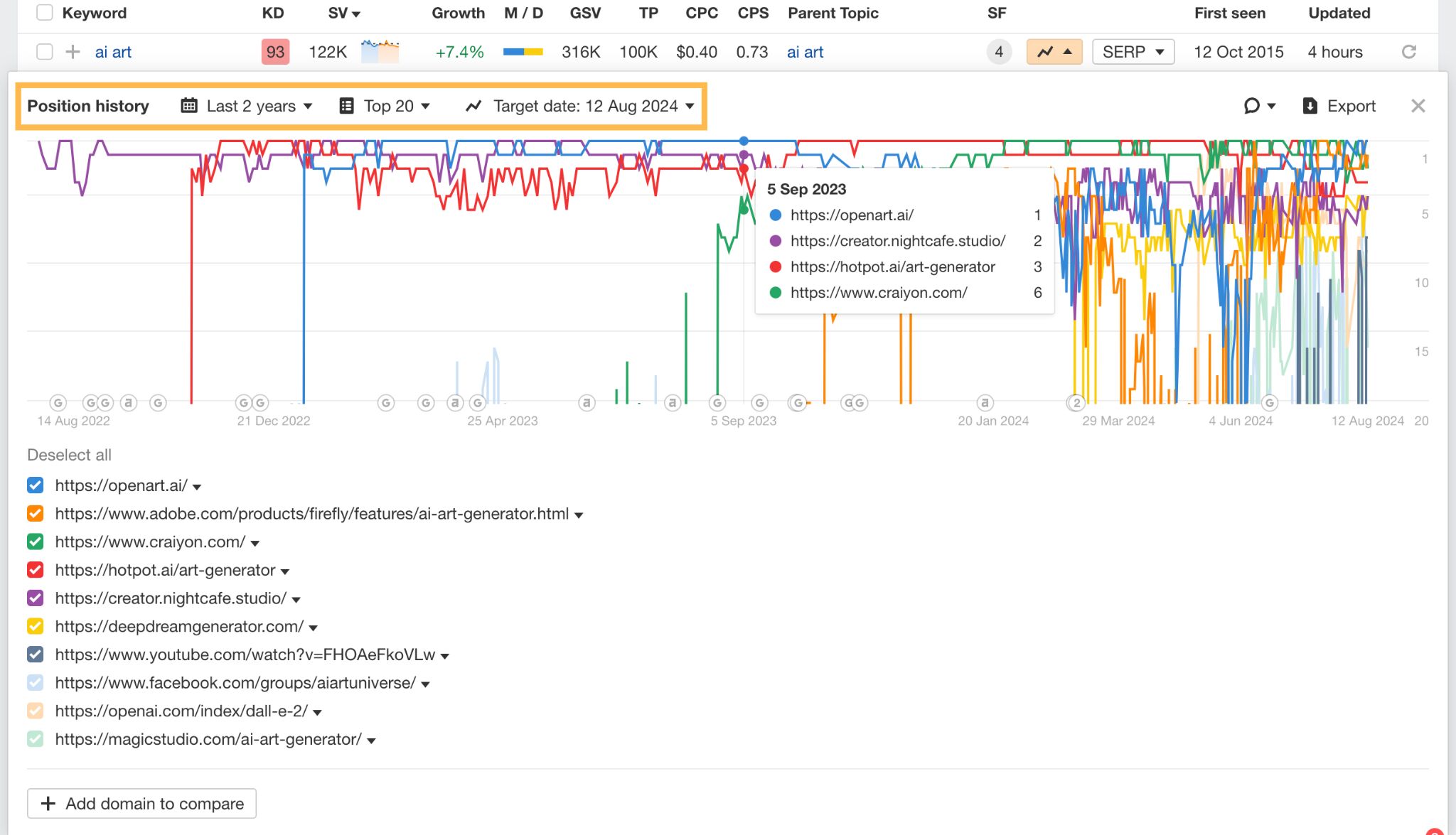

With Keywords Explorer you also get access to search volume history and forecast. This allows you to track the changes in demand for keywords and see how that correlates with changes in traffic to your website or make more informed keyword choices.
